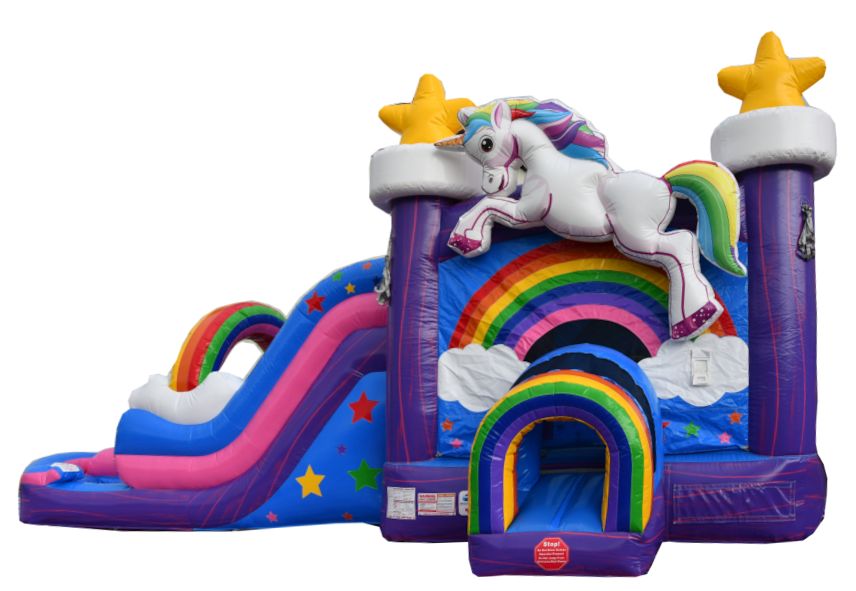Bounce houses, a popular attraction at children’s parties and events, can be a lucrative rental business. However, before diving into this venture, it’s crucial to understand the insurance implications. The potential liabilities associated with
bounce house rentals can be significant. Accidents, injuries, and property damage can occur, leading to substantial financial losses. Insurance provides a safety net, protecting your business from unexpected claims and ensuring its continued operation. In this article, we’ll take a closer look at whether you need insurance to
rent out a bounce house. We’ll discuss the different types of coverage that may be necessary, including general liability insurance, commercial property insurance, and event liability insurance. Additionally, we’ll explore factors to consider when selecting an insurance policy, such as coverage limits, deductibles, and exclusions. By understanding the insurance requirements for bounce house rentals, you can make informed decisions to protect your business and mitigate risks.

Do you need Insurance for Bounce House Rentals?
Yes, you absolutely need insurance for bounce house rentals. While it might seem like a hassle, insurance provides crucial protection against unexpected accidents, injuries, and property damage.
Here’s why:- Liability Protection: Bounce houses can be prone to accidents, leading to injuries or property damage. Insurance covers the costs associated with lawsuits, medical expenses, and property repairs.
- Financial Security: Without insurance, you could face significant financial losses if a customer is injured or property is damaged. Insurance is key to protecting the valuable assets of your business.
- Peace of Mind: Knowing you have insurance can give you peace of mind and allow you to focus on running your business.
Types of Insurance You May Need for Bounce House Rental
When it comes to Bounce House Insurance, there are several types of coverage that you should consider to protect your business:
1. General Liability Insurance
It is a cornerstone for most businesses, including bounce house rentals. It covers bodily injury, property damage, and personal injury claims that may arise from your operations. For example, if a child is injured while bouncing on your bounce house, general liability insurance would help cover medical expenses and potential legal fees.
2. Commercial Property Insurance
Commercial Property Insurance protects your physical assets, such as the bounce houses themselves, equipment, and any inventory you may have. This coverage can be crucial in case of theft, vandalism, or natural disasters that damage your property.
3. Event Insurance
Event Insurance is specifically designed to cover accidents and injuries that occur at events where you rent out your bounce houses. This can be especially important if you attend large-scale events or festivals.
4. Workers’ Compensation Insurance
It is mandatory in most states for businesses with employees. It offers protection for medical bills and lost wages if your employees are injured while working. If you have staff assisting with the setup, operation, or maintenance of your bounce houses, workers’ compensation insurance is crucial.
Cost of Bounce House Insurance
The cost of bounce house insurance can vary significantly depending on several factors, including:
- Coverage Limits: Higher coverage limits usually lead to increased premiums.
- Deductibles: A higher deductible can lower your premium but increase your out-of-pocket costs in case of a claim.
- Business Size: Larger businesses with more employees and equipment may require higher coverage amounts and therefore higher premiums.
- Location: Insurance rates can vary based on your location due to factors like crime rates, natural disaster risk, and local regulations.
- Insurance Company: Different insurance companies may offer varying rates and coverage options.
Here’s a general breakdown of potential costs for bounce house insurance:| Coverage Type | Average Annual Cost |
| General Liability | $300 – $800 |
| Commercial Property | $500 – $1,000 |
| Event Liability | $200 – $500 |
| Workers’ Compensation (if applicable) | Varies based on payroll and state regulations |
These figures are approximations, and the actual costs can differ. To ensure you get the best deal, it’s important to request quotes from several insurance providers and compare their prices and coverage options. To get a more accurate estimate of your insurance costs, consider the following:
- Number of bounce houses: The more bounce houses you own, the higher your premium may be.
- Frequency of rentals: If you rent out your bounce houses frequently, your premium may be higher.
- Size of your bounce house business: If you have employees or operate a larger business, your premium may be higher.
- Claims history: Insurance companies may charge higher premiums to individuals with a history of claims
By understanding these factors and obtaining quotes from multiple insurers, you can find the most suitable and affordable inflatable insurance coverage for your
bounce house rental business.
We offer bounce house rentals in Apopka, Orlando, Ocoee, Winter Garden, Winter Park, Lake Mary, and many more cities in Florida. Contact us now to get the estimate.
Final Takeaways
In conclusion, Insurance for Bounce House Rentals is not just a legal requirement in many areas but also a smart business decision. It protects you from financial loss, and legal issues, and ensures that your customers have a safe and enjoyable experience while renting a bounce house. Insurance is crucial for both occasional and full-time bounce house rental businesses. Take the time to research your options, understand your needs, and invest in the insurance policies that will best protect your business.
FAQs
1. Do I need insurance if I only rent out bounce houses occasionally?
Yes, even if you only rent out bounce houses occasionally, it’s still important to have insurance.
2. What is the minimum coverage I should have?
At a minimum, you should have general liability insurance to cover potential injuries and property damage.
3. Can I rent out bounce houses without insurance if I have a waiver signed by customers?
While waivers can offer some protection, they do not replace the need for insurance. Waivers may not hold up in court, and insurance provides more comprehensive coverage.
4. How does event insurance differ from general liability insurance?
Event insurance is specific to a single event and may cover additional risks associated with that event, while general liability insurance covers ongoing risks associated with your business operations.


